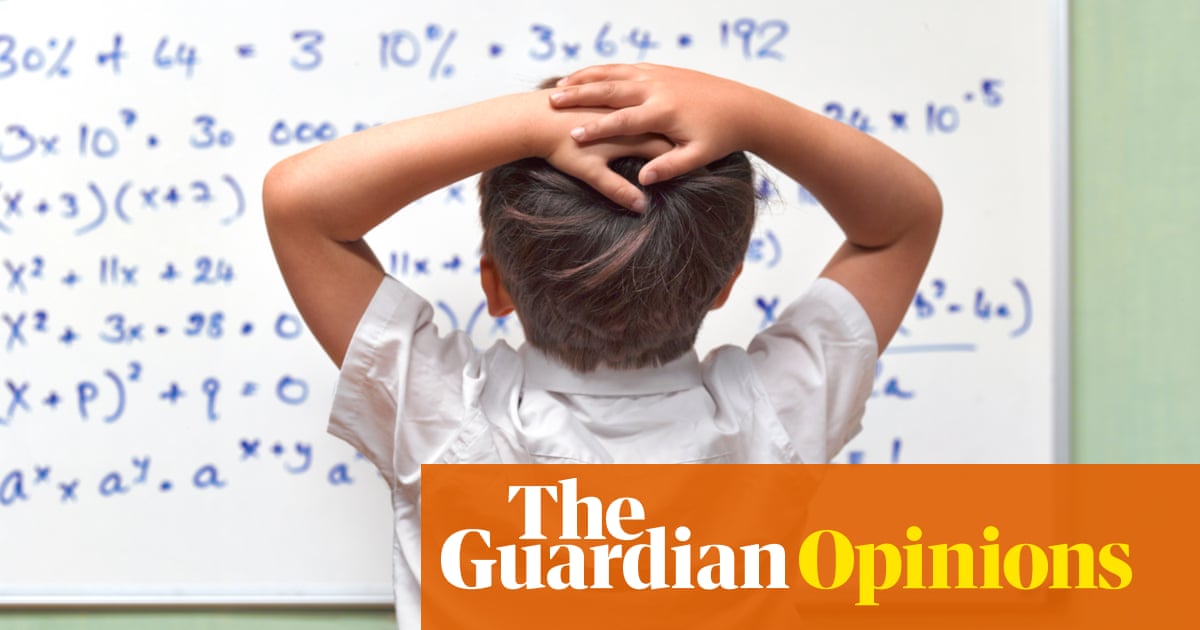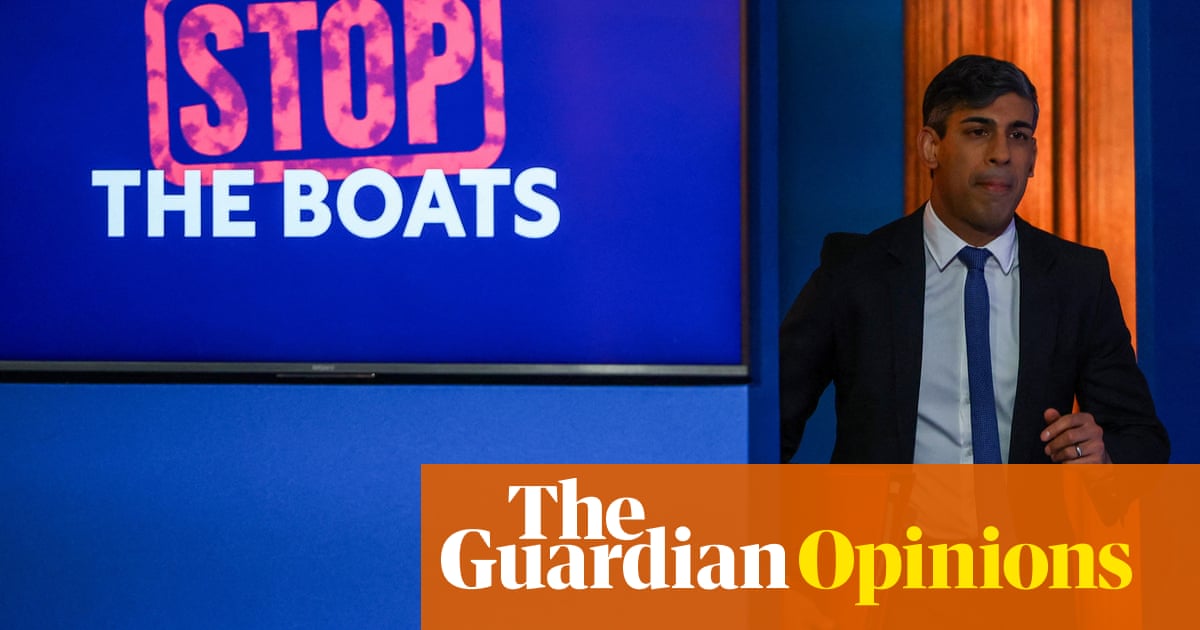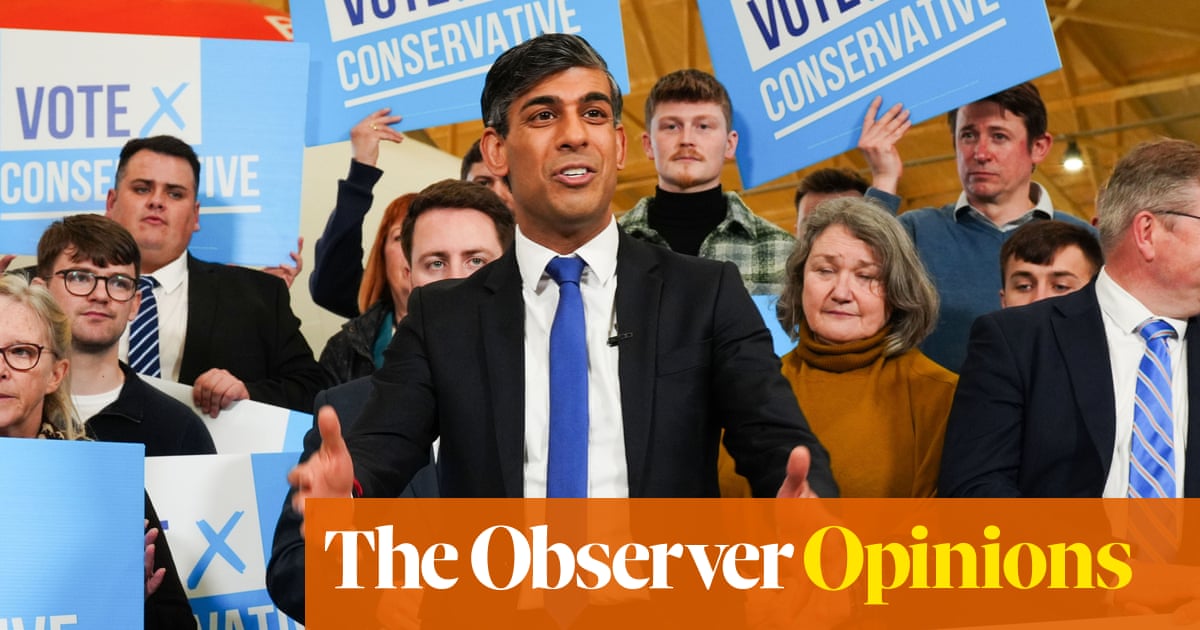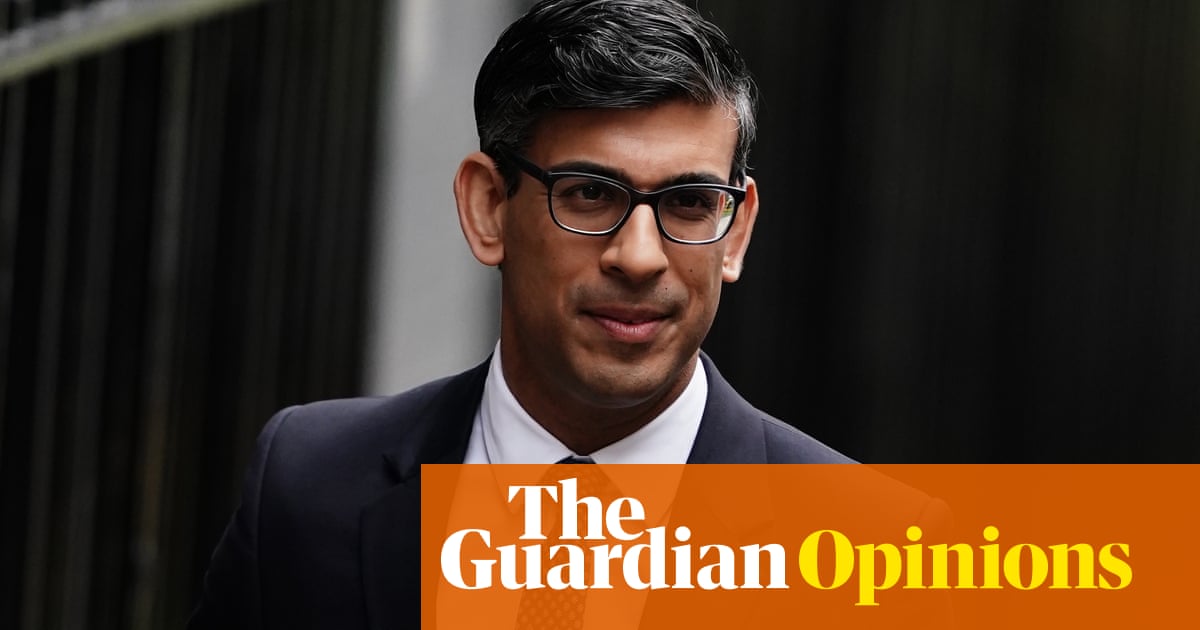
There is a pattern according to which the Conservative party chooses its leaders as the antidote to their predecessor. Theresa May was the stolid answer to David Cameron’s flimsiness; Boris Johnson promised to be a daredevil where May had been dour.
On that principle, Rishi Sunak had positioned himself as the candidate of sincerity and competence, Boris Johnson being the opposite of those qualities incarnate. When the prime minister looked close to being toppled during the “partygate” scandal, the chancellor’s support was tepid.
Then came war in Ukraine, a geopolitical crisis to make any domestic scandal look parochial by comparison. The change in perspective was a reprieve for Johnson. Tory MPs are no longer agitating for a replacement. Sunak’s loyalty can no longer waver so conspicuously.
The ambition is undiluted. Its expression was clear from a spring statement fashioned entirely around the Conservative party fetish for cutting taxes. Sunak was under pressure to abort a national insurance hike due next month, branded as a levy for health and social care.
Although the original impetus for that move had come from No 10, the chancellor bought into the political gamble – taking flak for breaking a manifesto pledge in order to avert the greater electoral hazard of an NHS funding meltdown. A U-turn would blow a hole in the budget, with the added sting of making him look weak in yielding to demands from backbenchers and the opposition.
Also, the received wisdom in Downing Street is that the optimal time for cutting taxes is just before an election. Voters might then carry the happy vibe straight into the polling booth.
Sunak’s ideological preference for a smaller state is not in doubt. He is a devout Thatcherite but of a particular denomination – the fiscally flagellant cult that insists on discipline in borrowing, reduced deficits and tighter spending before indulging in the pleasure of the tax cut. He was keen in his speech on Wednesday to emphasise how borrowing costs have risen and how global uncertainty demands the observance of “fiscal rules with a margin of safety”.
But for many Tory MPs, the optimal time for cutting taxes is always now. The chancellor didn’t want to disappoint them – and he found a solution that is more politically elegant than economically rational. The impact of the national insurance rise will be blunted by raising the threshold at which the tax is paid. Most thrillingly for Conservatives, Sunak has also booked in a 1p reduction in the basic rate of income tax for 2024. A VAT reduction on solar panels and insulation will help homeowners with enough of a disposable income to be in the market for greener energy hardware, which is not the demographic most in need of immediate help.
That isn’t any consolation for people struggling with their bills right now, but not much of the spring statement was aimed further than the Tory benches. In terms of the immediate cost of living crisis, there was a 5% cut in fuel duty and an increase in the household support fund – a meagre pool of local authority grants.
Meanwhile, inflation will shrivel the real value of state benefits and departmental budgets. For all the chancellor’s declared intention to throw a warm economic security blanket around the nation’s shoulders, people on the lowest incomes will be left out in the cold.
The whole package expressed a rhetorical contortion. Sunak wants to satisfy the Conservative self-image as a party of low taxation. At the same time, he can’t ignore economic reality shaped by the pandemic, war in Europe and public demand for services that are not completely derelict. The overall tax burden will still be at its highest level since the late 1940s. The Office for Budget Responsibility expects real household disposable income to fall this year at the fastest rate since records began.
What the chancellor advertised as an exercise in building economic resilience is really austerity by stealth, with the pain felt most by people who can least afford it. That promises a bumpy ride to the next election, albeit with comfort breaks for some Conservative target voters.
The political consequences are impossible to predict. Governments do not generally get more popular by making millions of people poorer. Then again, Britain has a record of swallowing bitter economic pills dispensed by Tory governments and returning the party to power, while Labour waits in vain for the pendulum to swing.
In the current crisis, Johnson and Sunak have a genuine alibi. It was Vladimir Putin who invaded Ukraine. That aggression, and the western sanctions to punish it, threaten a long war of economic attrition with a totalitarian state that doesn’t hesitate to impoverish its own citizens. Fuel is the first commodity to be affected. Grain is next. Ukraine and Russia account for around a quarter of the world’s wheat exports. A protracted war will make food scarce in some countries and more expensive everywhere.
These are perils unseen by western European electorates for generations. They require a level of candour from politicians about the scale and duration of the necessary sacrifices; also, economic policies that distribute the cost fairly.
Nothing in Johnson’s career suggests he can rise to that challenge. Any vestigial hope that he might do so was dashed when he compared Ukraine’s battle for survival to Britain’s decision to leave the EU. History invited the prime minister to reach for a Churchillian mode of national reconciliation, the role for which he has always imagined himself destined. Instead he chose the only way he knows: crass insensitivity and cynical division.
Sunak had the chance to be different. He emerged from the pandemic poised to be the anti-Johnson; the serious alternative. But he missed the turning in the road. There is no room now for repudiation. Whether they trust each other or not, from here onwards, Boris and Rishi are a duplicitous double act; the same record, the same fate.
Rafael Behr is a Guardian columnist
Join Hugh Muir, Richard Partington and Anneliese Dodds MP in a livestreamed event on the cost of living crisis and the effect on the poorest households, on Thursday 14 April 2022, at 8pm BST | 9pm CEST | 12pm PDT | 3pm EDT Book tickets here












